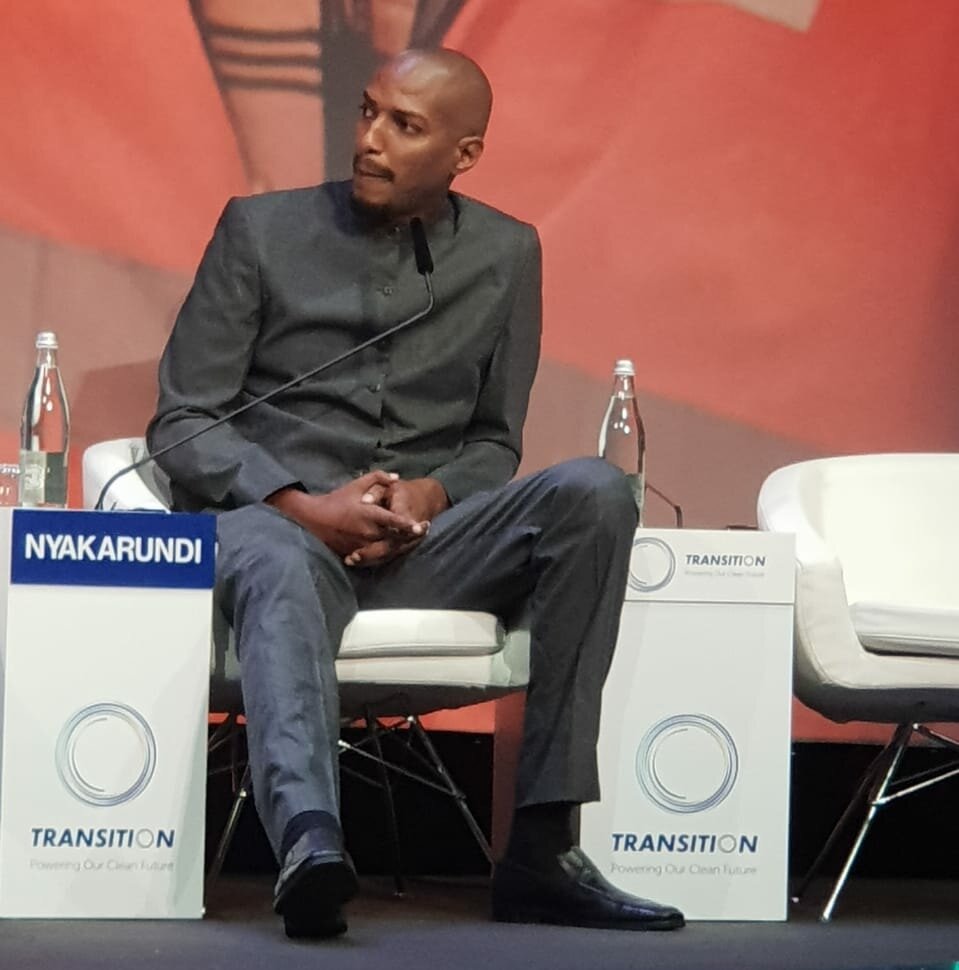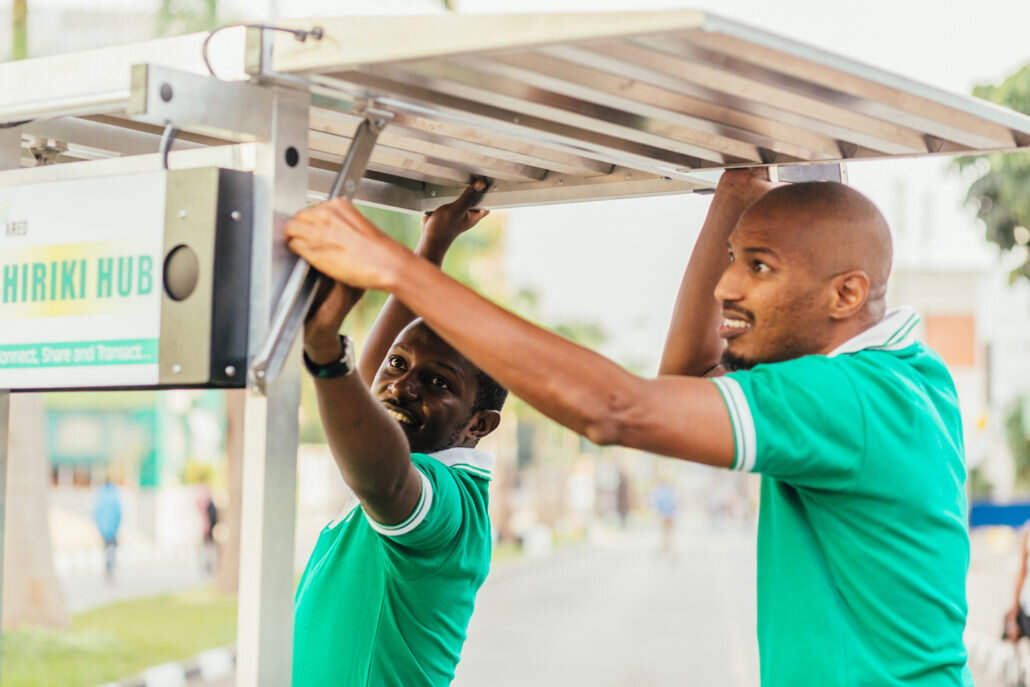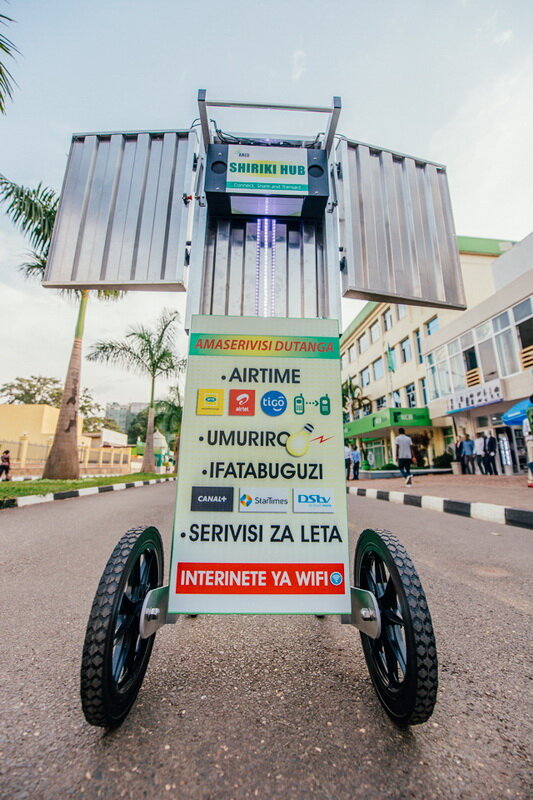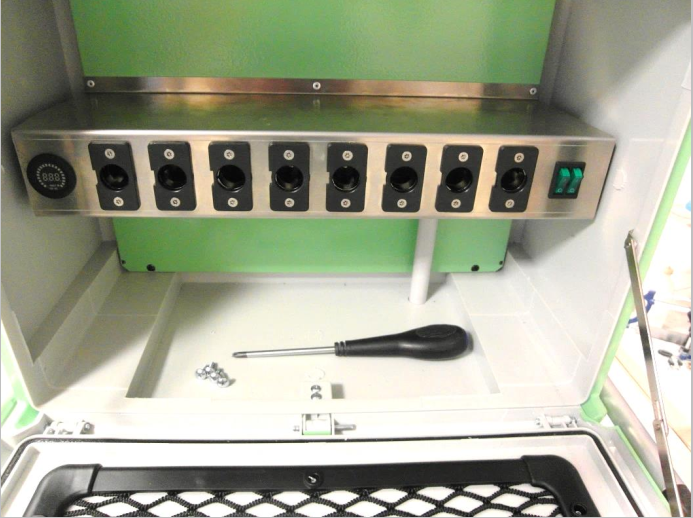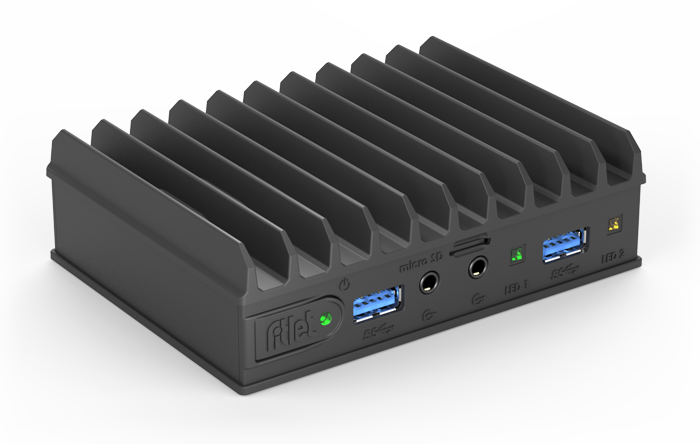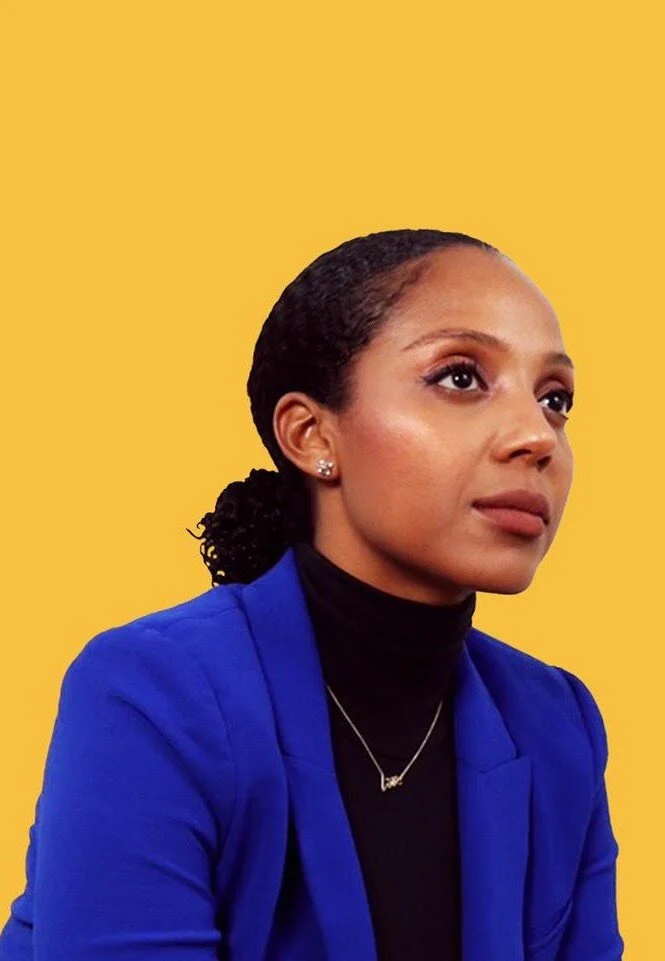Henri Nyakarundi - Powering Africa one Solar Kiosk at a Time
“... To solve the poverty issue, we need to first understand the different layers of poverty that exist in society. As we have learned on the ground, there are two types of poverty, extreme poverty and “mid” poverty. Unfortunately, most organizations that are fighting poverty issues do not understand the problem and bring a “top-to-bottom” approach that never works. At ARED, we bring to the forefront social impact concepts and ideas that will solve those issues in our lifetime, and together we can influence governments to facilitate social impact organizations the way they have facilitated NGOs.”
Many Youths leave the African continent with a plan to learn, gain experience, and return home – however, more often than not, many of them never do. Others go with no intention ever to return. What keeps many in the diaspora away, and for so long? In his book, My African Dream: One Man's Journey Back Home, Henri Nyakarundi takes us through his personal story of a young boy who longed for and often searched in all the wrong places for a way out of a life marred, he believed, with misfortune.
Henri is an award-winning CEO and Founder of African Renewable Energy Distributor (ARED), a serial Social Entrepreneur, Author, Speaker, Strategist, and Mentor.
“I used to believe that the circumstances you’re born into define the remainder of your existence. If you’re poor, you stay poor. If you’re rich, you stay rich.”
Henri and his colleague assembling a Shiriki Hub.
His book, an autobiography, gives us a glimpse into Henri’s life growing up in Burundi - where his family were urban refugees who left Rwanda in the 1950s- and his time living abroad in the West. Here, he shares his personal experiences and the challenges he faced living as part of the African Diaspora in the United States and his final decision to return to the continent, Burundi and later Rwanda, after almost two decades living in the US. While in the U.S, Henri obtained a degree in Computer Science from Georgia State University, USA. Before moving back to the continent for good, he had founded UMG Transportation, a heavy equipment rental company, in Burundi, and UMG Logistics LLC, a trucking company based in Georgia, USA. A few years later, in 2013, after a tough start in Burundi and with the uncertainty of the political climate, Nyakarundi decided to move and register his business, ARED GROUP LTD, in Rwanda.
“After seventeen years abroad and now five years back in East Africa, the road has not been easy, but what Henri found is peace of mind, a better quality of life, his true self, and where he truly belongs. Over the course of Henri’s journey, you are going to hear anecdotes about failure, resilience, hope, and purpose. This is not a book comparing two worlds, but a personal journey of self-discovery and of the realization that we, as Africans, can build our own dreams at home.
”
ARED is a renewable energy hard-tech company based out of Rwanda and Uganda with representation in Nigeria and Ivory Coast.
Through ARED, Henri developed a "business-in-a-box solar-powered kiosk - Shiriki Hub – leased through a franchise model. The word Shiriki comes from the Swahili language, meaning to share or to do together, an apt name for the Hub's franchise model. During his frequent travels between Burundi and Rwanda, he witnessed people on the road, similar to airports, often searching in vain for a spot to charge their portable devices. This demand for charging stations observed during his journeys between Bujumbura and Kigali's streets led him to establish the Shiriki Hub mobile kiosks that can be stationary or mobile hoisted by a bicycle or motorbike. The kiosks provide customers with various services, including a phone charging station, airtime, mobile money, prepaid electricity, access to the internet/intranet, and a Bluetooth printer while on the go. The kiosks can charge over 30 mobile devices at the same time. Shiriki Hub also provides a platform for clients to advertise their businesses and run digital surveys and campaigns. The Hub is also leveraging the Internet of Things (IoT) to collect data and match value for users. ARED has evolved their business model in 2020 to better fit the framework of Last Mile Connectivity into a Software as a Service approach (SAAS).
Expanding opportunities for economic empowerment through the ARED franchise.
Since he began his work as a Social Entrepreneur, Nyakarundi has been adamant about rooting his work around long-term, African led strategies that impact and provide solutions to enhance economic empowerment. In his lifetime, Henri has dedicated his life to fighting poverty through his social enterprise. Sixty percent of profits generated through the kiosks have been reinvested into further research and development (R&D) to improve the technology used and provide training and support to franchisees. Although, today, they are using a slightly different approach, at ARED, the kiosk franchises were partners - with women, refugees, and people with disabilities, who often lack access to economic opportunities, making up a significant portion of the Shiriki Hub franchise family.
ARED is breaking internet access barriers by providing WiFi connectivity to the last mile.
A proponent of green business and clean technology, Henri is the recipient of the first edition of the "ICT for Social Good" Grant program, which focuses on Innovation for Development. His Social enterprise, ARED, has also been recognized both nationally and internationally and has won several awards – including the Siemens empowerment award, Energy Global Award, African forum's 100 innovation for sustainable development award, SEIF social entrepreneurship Award, the Ishow innovation showcase AWARD, and numerous more.
Nyakarundi is no stranger to the challenges in the African marketplace. Nonetheless, he uses his voice to shed light on the challenges faced by many African entrepreneurs while also offering up sound solutions to address unemployment, lack of access to energy, and the limited opportunities to access smart funding. As an advocate for entrepreneurship in Africa, renewable energy, innovation, and technology, his expertise is highly sought after. To share his knowledge, Henri offers consultancy and coaching services to emerging businesses and start-ups and established businesses that want to launch into the African ecosystem. Moreover, his coaching services provide a suite of services that provide startups with the tools to pitch to investors, win competitions, raise capital, gain grant funding, develop business models and set up a hardware product supply chain.
Solving last mile connectivity, on the continent, without an energy strategy is practically impossible. Moreover, with the high cost of internet and access to high-end smartphones being out of reach to most, many low-income users continue to fall behind in digital literacy. Today, ARED has evolved into a Business to Business to Consumer (B2B2C) company using a SAAS model. They have developed a multi-service digital edge network to facilitate access to digital applications, digital services, and phone charging services for low-income people. They have also developed several products - a mini-server platform that allows them to locally store digital applications and distribute via WIFi to users. The mini-server is built into solar kiosks to power the technology while simultaneously providing phone charging services - solving three critical problems with one solution.
Shiriki Hub kiosks ensures that your device stays charged and connected while you are on the go.
Presently, Henri is one of the seven finalists for the Africa50 Innovation Challenge, addressing last Mile Connectivity. On November 12th, the final winner of the Africa 50 Innovation Challenge will be announced,
The Djellibah Team got a chance to interview Henri on the Djellibah Questions
What is your Dream For Africa?
Self-Sustainability, on all levels, not just on a country level, but on the continental level as well. And I mean this in terms of food, funding and everything. Africa is the only continent that is talked about, but that is not part of the conversation…
In order for us to earn respect, we need to be self sustainable. We are unable to claim real independence unless we can stand on our two feet without having to beg for money elsewhere, to a foreign entity. Some people think China in Africa is going to change things, but switching one overseer for another, does not address the root causes of the problem. We need to lose this notion that “somebody” is going to save us. Everyone is just looking out for themselves. That’s why self-sustainability is the key. But it’s going to take ages to change, I gave up on the older generation, we need to educate the Youth, not just in school, but in terms of changing the way they perceive their own identity and cultures in this world. elsewhere is not better than your home. We need to rebuild our esteem about our countries. We need to teach our children about their leaders, not the ones from today, but the ones we forgot about.
Youth are getting brainwashed and we need to change that. We don’t control the narrative, and we won’t for a long time, but if we build pride in our children, you get a solidified identity, whereby, they will never perceive another place better than their own home. It’s all about the mindset, if we can change the mindset, wonderful things happen!
If you didn't have to work a day in your life, what would you do, where would you go, and what would you create?
It’s funny you ask that, because in terms of ARED’s growth, I am happy with what we have done so far, and we are looking towards an exit strategy. It’s a pretty capital intensive business in terms of Research and Development, and we set up a holding for the company, to make it more appealing to potential investors that would want to buy us out. When we are present in at least 10-12 countries, I think that’s a good benchmark for success where we can comfortably sell and get on with the next project. Telecoms seem to be interested in what we have to offer. So if that ever ends up happening, I can focus on my passion project. I can’t tell too much about it for obvious reasons, but it involves low-cost, high-yield agriculture in improvised spaces. There is a lot of technology out there to grow food with limited inputs. COVID really reinforced my belief that there is a need for increased growth in access to food. Believe it or not, our populations are going to double within 60 years, meanwhile 30% of all agricultural production in Africa goes to waste because we don’t have adapted systems for optimal storage. Food is going to become a huge conundrum. That’s why urban farming is the future to me.
What do you want to say to Young African creators who don't know where to start?
If they have a great product or service, they have to develop it, test it, and validate it. Then plug yourself into an accelerator, preferably an international accelerator, this can help you strengthen your brand and your product before you get to the next step. Then comes the harder part, finding funding. But you need to have a prototype. The final step I would focus on is networking, that’s something I learned the hard way. If you want to scale your idea up, you need partnerships. Internationalizing your product or service on your own, if you don’t have any backing, is suicide, especially in Africa. For example, when I tried scaling up with a neighboring country, I assumed it would be easy, but what you tend to forget, is that the laws are totally different, so you need to get a lawyer; then you need to hire a team, make sure you are compliant, train your team, and that alone costs in the hundreds of thousands, and that’s just to get started, and you’re not going to make any profit in a new market for at least 2 to 3 years, so there are a lot of considerations that go along with it. This is why partnership is key. You find a partner already based there and already functioning and you plug your product or service into their value chain. It’s a win win situation. If you have the capital though you can venture on your own, but I can think of a few start-ups that were cash-heavy, but went out of business because they were run down by expenses. All in all, your business model has to be up to par. Otherwise, it’s rough out there. It’s a battle on all fronts!


